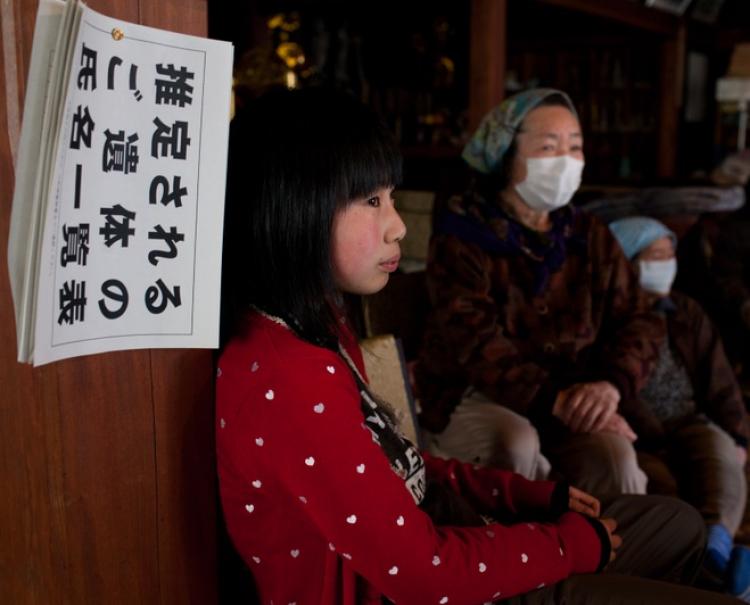Special Relief From Chinese Volunteers to Japan’s Survivors
When most people are leaving the earthquake zone, a small group of Chinese drove into it, to teach meditation for unique relief.

A list of names of earthquake and tsunami victims hangs on a wall as Japanese refugees wait for aid at a Buddist temple used as an evacuation centre in Ofunato, Iwate prefecture on April 4, 2011. Yasuyoshi Chiba/Getty Images
|Updated:






